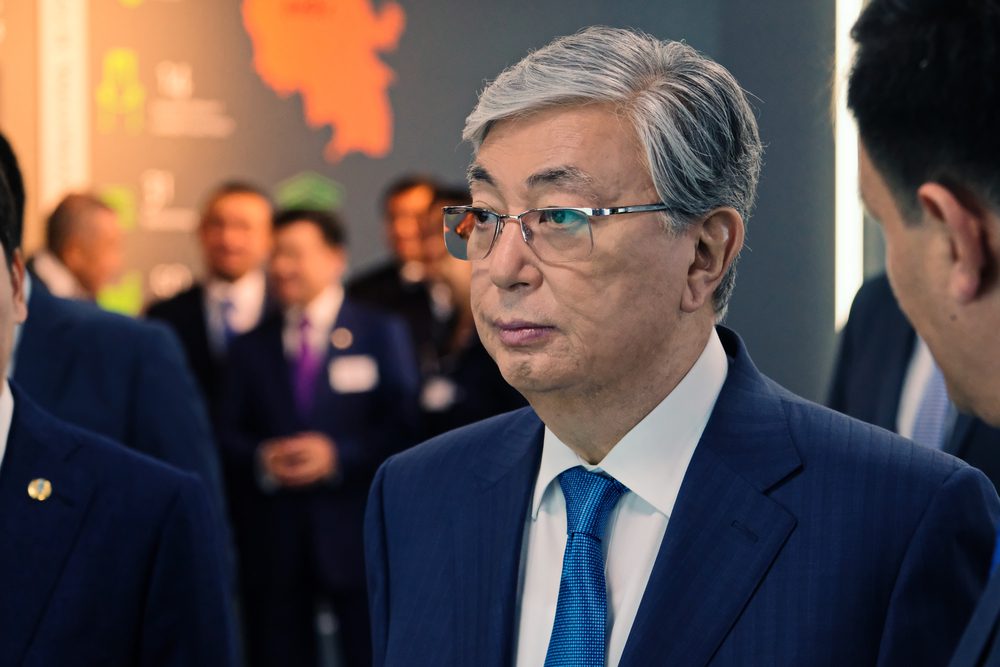
Under incumbent President Kassym-Jomart Tokayev, re-elected with 81.3% of the vote today, November 21st, Kazakhstan appears on course to reinvent itself as a modern liberal democracy. By doing this, the former Soviet republic is charting an independent course, while seeking closer economic ties with the West.
As reported by the AstanaTimes, Kazakhstan’s Central Election Commission (CEC) announced that Tokayev, 69, had won Sunday’s snap election based on preliminary data, which—mathematically speaking—guaranteed Tokayev a second term.
“People have clearly expressed their trust in me, and we have to justify it,” Tokayev said after the release of three election polls showing him taking between 82.2-85.5% of the vote. Voter turnout was 69%, according to the election commission.
While most foreign observers called the process a “transparent” one, and “in strict accordance with the country’s law,” according to observers from the OSCE Office for Democratic Institutions and Human Rights (ODIHR), the election took place “in a political environment lacking competitiveness and, while efficiently prepared, the election underlined the need for further reforms to bring related legislation and its implementation in line with OSCE commitments to ensure genuine pluralism.”
On the eve of the presidential election, German magazine Der Spiegel described Tokayev as being “groomed by Europe, feared by enemies, sure of victory.” Given the election’s outcome and his stated priorities, i.e. providing Kazakhstan with a political system that is more democratically progressive, while ensuring economic reform, the assessment in large part is correct.
Indeed, as Tokayev is armed with a strong mandate for executing his democratically as well as economically progressive vision, the country (which dominates Central Asia politically as well as economically through its abundant supply of accessible mineral and fossil fuel resources) is sure to attract foreign investors—particularly from the West, which has taken a liking to this “new Kazakhstan.”
In recent months, Kazakhstan with other adjacent nations had already been courted in a most vigorous fashion by Europe. For Germany, the country is its most important partner in the Central Asian region. During her visit there in late October, Foreign Minister Annalena Baerbock (Greens) sought a possible hydrogen deal.
Later, she announced that Germany would open a “hydrogen diplomacy” office in its capital of Astana, with the wish for it to become “a hub for the exchange of experts and responsible people from both countries in the future”—naturally, as with most things with the Greens, all done with an eye towards reducing emissions.
And then, only days ago, the EU’s top diplomat, Josep Borrell, took the trek to Samarkand, Uzbekistan. Under the Global Gateway initiative, he represented the bloc which—through massive investments in the region—is seeking closer cooperation in many, if not most, areas.
“Samarkand used to be a "Gateway" between East & West. Today we are building connections under #GlobalGateway. When we build connections between our regions we connect people and invest in their future” HR/VP @JosepBorrellF remarks at Samarkand Conference https://t.co/9xp2rTerHa pic.twitter.com/fAGxZjMXrW
— European External Action Service – EEAS 🇪🇺 (@eu_eeas) November 18, 2022
Through such efforts, of course, the West is partly wanting to isolate Russia in that region, over which it considers Kazakhstan to be a sphere of influence. And herein lies a danger for the country. Ever since the Russian incursion into Ukraine territory, which Kazakhstan openly condemned, and later, by not recognising the eastern Ukrainian territories annexed by Russia, Tokayev is walking a fine line.
Given that Russia, with which it shares a 7,644-kilometer border, is an important trade as well as security partner under the CSTO military alliance (via which Russia helped in putting down a nationwide uprising over high gas prices), it needs to tread carefully so as to ensure it does not wholly alienate, let alone antagonize, its ally.
At least outwardly however, Russian President Vladimir Putin appears to take no issue with the path Tokayev has chosen.
“You have received a convincing mandate of trust from your fellow citizens, which opens up new opportunities for the implementation of the state development course you are promoting,” Putin communicated to Tokayev, congratulating him.
The Russian leader pointed out that “the relations of strategic partnership and alliance between our countries, which are based on the good traditions of friendship, neighborliness, and mutual respect, are developing very successfully. We will continue to work together to expand them further.”
Kazakhstan was initially expected to hold a presidential vote in 2024. However, Tokayev announced a snap presidential election in an address to the nation on September 1st. Parliamentary elections, he said, would take place in the first half of 2023.
On September 17, he signed a law that would extend the presidential term from five to seven years, under the proviso that holders of that office will only be permitted to serve for a single term. Under this law, Tokayev will be in office for another seven years. He succeeded long-time President Nursultan Nazarbayev in 2019, who for almost three decades had taken a decidedly autocratic approach to ruling Kazakhstan.
Whether the truism ‘old habits die hard’ shall soon be applied to the country, only time, as is its habit, will reveal.
